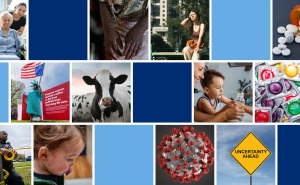The Maryland Maternal Health Innovation Program Grant Renewed with Johns Hopkins

Researchers at the Johns Hopkins Bloomberg School of Public Health received a five-year, $7.5 million renewal of the Maryland Maternal Health Innovation Program (MDMOM) grant. MDMOM, funded by the Health Resources and Services Administration (HRSA) in the U.S. Department of Health and Human Services, aims to improve maternal health quality and outcomes in Maryland.
MDMOM is a collaboration between Johns Hopkins University, the Maryland Department of Health, and the Maryland Patient Safety Center. Andreea Creanga, MD, PhD, ’09, professor in the Department of International Health at the Bloomberg School, directs the program. MDMOM is part of HRSA’s $90 million investment to address the maternal health crisis in the U.S.
The first phase of the grant, which was launched in 2019, aimed to eliminate preventable maternal deaths and severe pregnancy complications in Maryland. Key outcomes of the first phase include:
- over 5,000 provider trainings on implicit bias and early recognition of warning signs for severe complications of pregnancy
- the establishment of hospital-based severe maternal morbidity surveillance covering more than 70% of births in the state
- partnerships with 32 home visiting and community-based programs to increase women’s knowledge and access to care for pregnancy complications
The first phase also saw the establishment of the first Maryland Maternal Health Innovation Task Force coordinated by the Maryland Department of health and composed of state government officials, along with members of professional organizations, providers, payers, patient advocacy groups, and community organizations.
The second phase of the program will run from 2023 to 2028 and will continue much of the previous programming, while promoting and executing additional innovations in maternal health service delivery.
“This new funding will enable us to address additional needs of pregnant and postpartum women in Maryland by developing state and county resource maps and empowering women to better communicate with their providers, in addition to continuing to learn from surveillance of severe maternal morbidity events and working with hospitals and home visiting programs to address severe hypertension and mental health disorders in pregnancy and beyond,” says Creanga.
Several initiatives that are part of the second phase of the program include the Telehealth Initiative for Severe Hypertension, which distributes free blood pressure cuffs and monitors for self-monitoring at home for patients at risk of or diagnosed with preeclampsia; the Hospital Equity Initiative that supports interventions to improve systems of care and eliminate maternal health inequities; and a set of trauma-informed care activities to support patients, families, and hospital staff to prevent and respond to severe maternal events.





